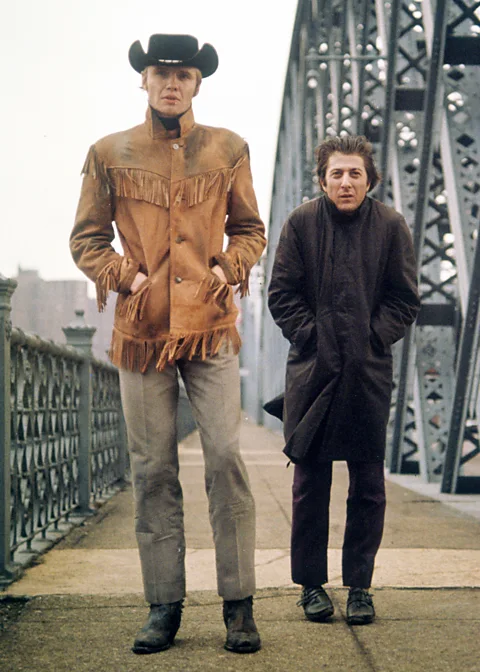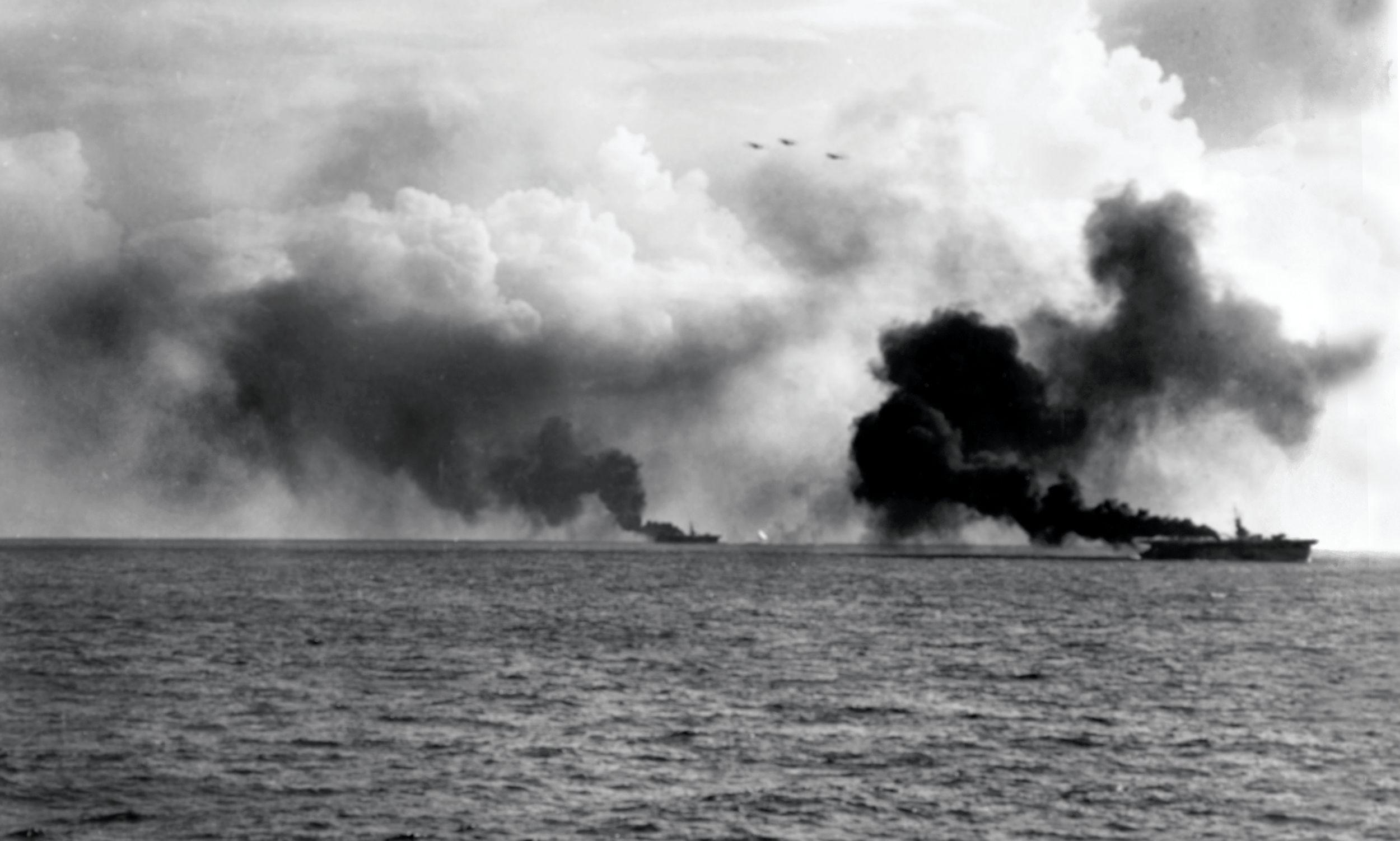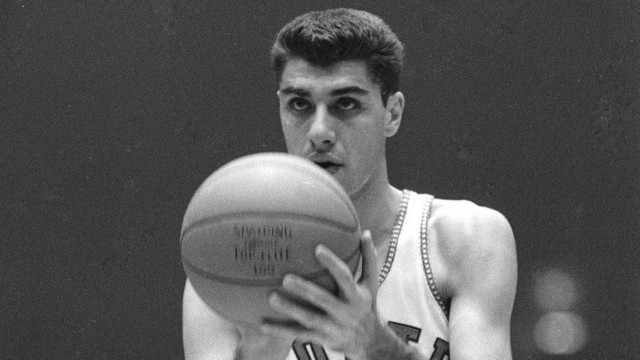'I'm not interested in happy endings': How Midnight Cowboy became the only X-rated winner of the best-picture Oscar
But to play the ailing Rizzo, who suffers from a disabled leg and tuberculosis, Hoffman felt that he needed to keep checking the film's rushes while filming to ensure his performance was consistent between takes. "I had to try and keep a posture, a gait going, a way of walking, a dialect going. I was very worried about the fluctuation of that," he told the BBC's Film Night in 1970, when he was interviewed on the set of his revisionist Western, Little Big Man. The actor later told Vanity Fair in 2000 that he ended up putting a stone in his shoe to ensure that he would limp on camera without having to think about it.

 Alamy
Alamy
"I think the average person will see work like that and think it is very difficult," said Hoffman. "But my own feeling is that Jon Voight's part was far the more difficult role in Midnight Cowboy because it was somehow a little more foggy, it didn't seem to really have a razor's edge to it as written, and it's to his credit that he brought what he did to it."
Voight, too, was far from a shoo-in for the role of an out-of-his-depth would-be hustler who ends up broke and desperate in New York, and forms an unlikely bond with Rizzo. The actor had initially been dismissed by Schlesinger, who felt that he didn't have the right look for the role. "We turned down Voight, and a wonderful casting director in New York in those days, Marion Dougherty, said, 'You are missing something, why won't you see Jon Voight?' We said, 'That face it isn't what we were thinking,' and she said, 'Meet him, read him one scene,' so we agreed and he came in and he seemed to us to be quite extraordinary, and so we added him to the list of people we were going to test."
But the director still chose Canadian actor Michael Sarrazin for the role instead. Luckily for Voight, Sarrazin was under contract with Universal Pictures, and when they tripled their price for him, Schlesinger looked at the screen tests again. Voight, who was willing to be paid scale – the Screen Actors Guild minimum wage – was then cast. "He had a kind of belligerence in his personality as well as a total sweetness and innocence that I think the part needed," Schlesinger said.
Midnight Cowboy did not seem an obvious contender for box-office success. Schlesinger's usual producer Joe Janni turned the project down, warning the director that the film could ruin his career. But Schlesinger, who was himself gay, told the BBC in 1994 that the story of outsiders struggling to survive on society's margins was something he could identify with. "I'm not terribly interested in sort of pseudo-happy endings of people walking hand-in-hand into the sunset because I don't think it is true. So, most of the films that I made have question marks at the end," he said.
Midnight Cowboy, which juxtaposes flashbacks, reality and fantasy to hint at the motivations driving its protagonists, was edited to Harry Nilsson's cover version of Everybody's Talkin'. The song would become synonymous with the film, seeming to encapsulate its wounded characters' longing, aimlessness and desire for a better future.
"I always put music on at a very early stage in the cut," said Schlesinger. "I thought not only is it musically and rhythmically right, it's lyrically right, it has a wonderful apt lyric, so we put it on an early cut, and we went to the head of music at United Artists and said, 'This is what we want.'"
But a United Artists executive did not want to use a song that was already published and, believing that its feel could be easily replicated, he instructed the film-makers to work with a songwriter to come up with something new. "We went to various people from [Bob] Dylan to Joni Mitchell, who wrote a song that had far too many words," Schlesinger said. Dylan would ultimately write Lay Lady Lay for the film, but submitted it too late for it to be used.
"When we first showed the film to the distributors," Schlesinger continued, "we had Everybody's Talkin' on it, and the same man got up from the screening and said, 'My God, where did you get that song from? It's so terrific.' And we said, 'Well, we played it to you several months ago, and you said anybody can reproduce it.' So, he said, 'Well, we've got to have it.'"
Because Midnight Cowboy had explicit depictions of gang rape, prostitution and drug use, it was always destined to be limited to an adult audience upon release. And when it was reviewed by the Motion Picture Association of America, it was duly given a Restricted rating, meaning that in 1969 no one under the age of 16 could see it without an accompanying adult.
But the studio's boss, Arthur Krim, was nervous: he had consulted a psychiatrist who denounced the film's "homosexual frame of reference" and its "possible influence on youngsters". It was Krim who then decreed that the Restricted rating wasn't enough: Midnight Cowboy should be X-rated instead, so that no one under 16 would be admitted, even if they were with an adult.
An X rating, a category typically associated with pornography, would usually be the commercial death knell for a mainstream film. Many cinemas refused to show X-rated films, while many newspapers and TV stations refused to run advertisements for them. But Universal Studios made the rating a selling point, paying for advertisements that trumpeted: "Everything you hear about Midnight Cowboy is true!"
When it was released, the film became a surprise hit. It made back 10 times its modest $4m (£3m) budget and became the third highest grossing film of 1969. "It had an extraordinary reception," said Schlesinger. "I didn't realise we were sitting on top of something that was going to be that successful."
Midnight Cowboy was also critically lauded, earning seven Oscar nominations the following year. It would go on to win three Academy Awards, with Schlesinger taking home the prize for best director, and Waldo Salt for best adapted screenplay. The film also scooped the Oscar for best picture, becoming the first and only X-rated film to do so. (The MPAA replaced the X rating with the NC-17 rating in 1990.) Alongside other films of the era such as Bonnie and Clyde, The Graduate and Easy Rider, Midnight Cowboy helped set off the New Hollywood movement, which would see US cinema embrace more narratively complex, morally ambiguous and stylistically innovative film-making in the 1970s. In 1994, it was selected for preservation by the Library of Congress due to its being "culturally, historically or aesthetically significant".
Despite Midnight Cowboy's box-office success and critical acclaim, Schlesinger told the BBC that there was "no way" it would get made in 1994. "Recently I was having dinner, amongst the guests was the head of Columbia [Pictures] and I tried out just a precis, just the dramatic points of the story. And I said, 'If I brought you that, would you do it?' And he said, 'Absolutely no way, I'd show you the door.'"
--
For more stories and never-before-published radio scripts to your inbox, sign up to the In History newsletter, while The Essential List delivers a handpicked selection of features and insights twice a week.
For more Culture stories from the BBC, follow us on Facebook, X and Instagram.











